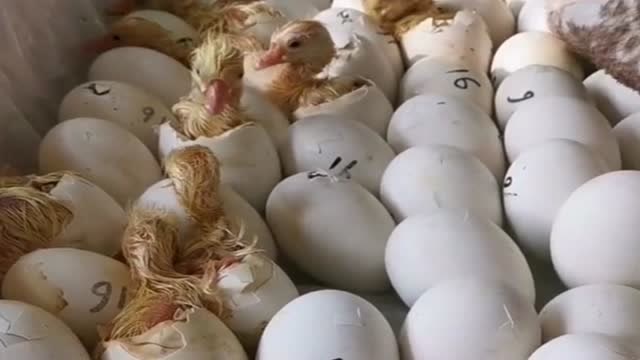


In the process of duck egg hatching, the water inside the egg evaporates outward. In order to keep the water evaporation at a certain speed, the embryo can grow and develop normally.
Too slow evaporation of water will affect embryo development and reduce hatching rate and duckling quality.
The stereoscopic incubator has a fan device with fast air flow speed. In addition, the egg has high fat content, low water content and high metabolic heat, and the water in the egg is easy to evaporate.
If the humidity is too low, the water in the egg evaporates quickly, and the embryo is easy to adhere to the shell membrane, which affects the normal shelling.
The general principle of humidity change is "high at both ends and low in the middle".
At the initial stage of incubation, the fetus produces amniotic fluid and allantoic fluid, and the relative humidity should be controlled at 70%. At the later stage of incubation, in order to make proper water react with the dioxin in the air to produce carbonic acid, make the calcium carbonate in the egg shell change into calcium bicarbonate and become brittle, which is conducive to the breaking of the shell of the round embryo, and prevent the duck down from sticking to the shell, the relative humidity should be controlled at 65-70%.
If the humidity is not enough at the later stage of duck egg incubation, warm water can be sprayed directly on the surface of the egg shell to increase the humidity.